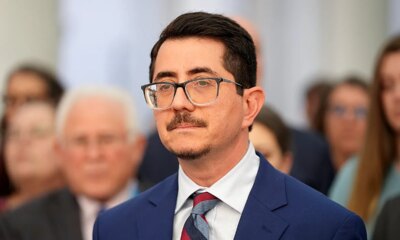Jon Chesto’s recent Bold Types item on Rich Davey, new CEO of the Massachusetts Port Authority, cites Davey’s vision for sustainable aviation fuels (“Ex-state transportation chief takes over at Massport,” Business, Oct. 29). SAFs are biofuels touted as environmentally friendly alternatives to traditional jet fuel. However, through their production and use, SAFs result in a considerable release of greenhouse gas emissions.
Massachusetts has set the goal of net zero by 2050. Transportation, including aviation, is responsible for about 40 percent of Massachusetts’ total greenhouse gas emissions, yet I have seen no decarbonization targets established for aviation.
In an October 2023 report, state climate chief Melissa Hoffer directed Massport to develop a plan to use alternative fuels. However, a footnote in her report cites a 2016 Carbon Brief article, “Analysis: Aviation could consume a quarter of 1.5C carbon budget by 2050,” that contradicts this recommendation: “Complete replacement [of jet fuel by SAFs] by 2050 would require around 170 new large biorefineries to be built every year. … If progress is initially slow, and then picks up after 2035,” the approximate cost would be $29 billion to $115 billion per year.
The article cites the view of one observer who says that “what all these industry-led analyses refuse to acknowledge [is] that the only reliable means by which to control aviation emissions is to manage — i.e., curtail — demand growth.”
Davey has his work cut out for him.
Anne Buxton Sobol
Lincoln
One of Rich Davey’s priorities as the new CEO of Massport, according to reporter Jon Chesto, is making Logan Airport “a convening ground for the study and adoption of more sustainable aviation fuels.” SAFs are crops or agricultural waste mixed with conventional jet fuel. Aviation proponents claim that this makes SAFs more sustainable than conventional jet fuel. However, there is strong evidence that crop-based biofuels are more carbon-intensive based on their full life cycle. Characterizing them as a green solution is misleading.
Municipalities across Massachusetts are working hard to reduce their carbon footprint, yet the aviation industry is planning for continued annual growth. Because their disproportionate greenhouse gas emissions aren’t good optics, they promote SAFs to persuade policy makers and the public that continued growth of aviation is acceptable because it’s “sustainable.” But that’s not the case. On the contrary, if SAFs were successful, they would hijack land necessary for food production, leading to increased hunger and the destruction of forests and wetlands.
Instead of looking to SAFs as a feel-good solution for growing a polluting industry, Massport should plan scenarios to decrease aviation over time, especially private aviation.
Janet Rothrock
Concord







































